Improving Your Farm Via
Who is Regenerative Australian Farmers?
Regenerative Australian Farmers (RAF) is a leading facilitator and service provider for integrated agricultural solutions to build and monetise soil organic carbon, soil health and rural prosperity. This includes cost effective soil carbon evaluations, soil carbon field coring, baselining expertise & targeted implementation plans to support long term soil carbon contracts. RAF is a member of the Australian Government’s soil carbon methodology working group to further develop and refine measurement and reporting techniques and is linked to a global leader in remote sensing (satellite) of ground data including soil carbon.
What do we do?
RAF works with landholders and partner service providers across all stages of a carbon project’s lifecycle in collaboration with industry partners. Since 2015 RAF has played a major role in securing substantial soil carbon sequestration contracts (10 year) under the Federal Government’s Emission Reduction Fund.
RAF offers landholders a comprehensive and affordable suite of soil carbon measurement and emission reduction services (from an initial diagnostic, soil carbon baseline, implementation plan to on-going monitoring and reporting and energy effiiency) of which the central focus is building soil carbon and helping farmers secure a competitive commercial return on their investment through both a carbon price and increased productivity.
Our Vision
To contribute to a global reversal of the current trend in land degradation through regenerative agricultural practices that build soil carbon, increase water retention, support soil biology and ecosystem biodiversity. This is our legacy.
What motivates us
RAF believes that regenerative agriculture is one of the best kept secrets in our collective response to climate change, widespread land degradation, water retention, loss of diversity and declining regional economic growth, and our desire for food security that is clean and non-toxic. Net farm income is at record lows with the cost of industrial agriculture climbing relentlessly. Given that humanity is sustained by just the top 15cm (6”) of soil, if we fail to ensure that this precious veneer of the earth’s crust is not taken care by reversing the current oxidative farming practices and working with nature not against, the consequences are neither desirable nor unacceptable. We have the evidence. Since 1840 the soil carbon levels in southern Australian have fallen from around 4% to less than 1% (source Strezlecki, 1842). This has arisen from oxidate farming practices which deplete our soils of organic carbon and increase of atmospheric CO2.
RAF’s agenda is to inform, educate, motivate and participate in restorative farming practices that result in atmospheric carbon being returned to the soil, the soil sponge rehydrated, emissions reduced and farm productivity increased. Healthy soil; healthy plants and animals; healthy and affordable food; healthy humans. It’s that simple – together we can.
Our Team
RAF is a team with a wealth of industrial and regional experience, including landholders, engineers, scientists, project managers and businessmen.
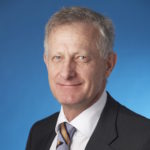
Dr John White (Director) - BE(Hons), PhD(Cantab), FIEAust, FATSE.
Dr White has been involved in the development of regenerative farming systems for over four decades and has provided input to Federal and State governments for Climate Change policy, including the passage of the Carbon Farming Initiative (CFI) and Emissions Reduction Fund (ERF) legislation.
John is Chairman of Regenerative Australian Farmers (RAF), aimed at rolling out regenerative farming systems that can sequester atmospheric carbon dioxide as stable soil carbon, improving agricultural productivity and regenerating the landscape – to make a significant contribution to climate change solutions.Formerly John was the Chairman of Global Renewables (to pursue greenhouse gas reduction opportunities and waste recycling solutions) and the CEO (and a Director) of a number of major private and publicly listed Australian companies, including AMECON/Transfield Defence Systems, Visy Industries and Siddons Ramset Limited. John served as Chairman of the Australian Government's Uranium Industry Framework, was a member of the Australian Government's Defence Procurement Board, a Director of the DefenceSA Board and co-authored the Federal Government’s Review of the AWD Program.
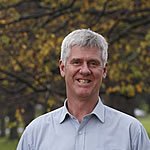
Deane Belfield (Director) - BEng, MEnvSc(Hons), MBA, FIEAust.
Deane has spent the bulk of his career working with blue chip companies such as Siemens, Telstra, Coopers & Lybrand and PricewaterhouseCoopers, before establishing ECO2Sys, a sustainable business consultancy. Through this time he was responsible for leading major projects that integrated sustainable and low emissions strategies into the core business function, both at a national and global level.
He has also been involved with the carbon emissions trading programs since 1998. Through his farming background Deane has seen the gradual degradation of farmland arising from the pressure of industrialised agriculture, which has become the dominant paradigm. This form of ‘resource extraction’ is not sustainable and has lead to increased greenhouse emissions, soil toxicity, and decreased soil biology and water retention.
Deane is an advocate of including regenerative agriculture (soil carbon sequestration) as a key strategy for any community seeking to achieve Zero Net Emissions. He runs a biodynamic farm in central Victoria and has a 10year soil carbon contract under the ERF. At the 2019 National Carbon Farming conference, Deane was awarded the Leadership Award.

Russell Rolls (Director) - BE, MBA, FIEAust.
Russell was formerly the CEO of Australian and International resources engineering companies. He has served on a number of government boards and committees and has been a long-standing Councillor of the Australian Industry Group. He assisted John White with the development of Global Renewables and has a deep commitment to greenhouse gas reduction through soil carbon sequestration and the consequent improvement in soil quality and farm productivity.
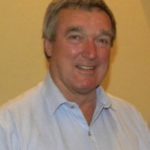
Tom Nicholas (Soil Specialist)
Tom is from a generational farming family. With formal training in agriculture, he has extensive experience working in the regenerative agriculture sector (Victoria, NSW and Queensland) and has first-hand experience in the implementation of regenerative practices that lead to improved soil biology, building soil carbon, greater water holding capacity (the soil carbon sponge) and is extremely well connected with leading practitioners in this sector across the entire Australian landscape.
Tom is RAF’s chief in-field soil carbon sampling practitioner, with a bespoke soil carbon rig able to quickly and effectively extract soil cores compliant with the Australian soil carbon methodologies, down to 30cm and beyond a metre. His keen eye for understanding the potential for improvement on any given farm is significant and is always willing to share ideas, case studies, encyclopaedic memory with a working knowledge of how to build healthy soils, be it in the paddock or at the kitchen table. He also co-founded the educationally oriented not-for-profit Healthy Soils Australia.
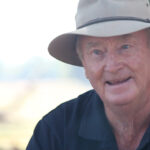
Colin Seis (Associate) - farmer, educator, founder of 'pasture cropping'.
The Seis family is one of the early (est. 1860’s) pioneering families in the Gulgong district of New South Wales Australia, and has been grazing merino sheep and growing cereal crops. Colin Seis and his son Nicholas own the 2000 acre property “Winona”, which runs 4000 merino sheep that are managed using holistic planned grazing. The property is managed using methods that continually regenerate its grassland, soil, and farm ecosystem, including multi-species cover cropping.
Concerned about soil toxicity from pesticides and synthetic fertiliser in 1993 Colin adopted ‘holistic planned grazing’ and developed a unique method of growing crops and restoring grassland and soil. The technique, called “Pasture Cropping” is a form of ‘perennial cover cropping’ where annual crops are zero till sown directly into perennial grassland after the grass has started its natural dormancy.
He is a multiple award winner for his achievements during the development of ‘pasture cropping’ and regenerative land management techniques. Melbourne’s icon Weekly Times magazine describes Colin as a “visionary and one of the world's top 6 most influential farmers”.
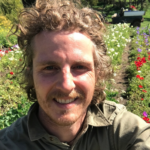
Thomas Kennett (Associate) - farmer, BCom, MEnvSust.
Thomas is an associate for RAF, drawing on his skills in marketing, advertising and business sectors, coupled with his Master of Environment and Sustainability and practical working knowledge of regenerative farming. He is currently undertaking a Soil Food Web course with Elaine Ingham and manages a regenerative market garden on the Mornington Peninsula, where the farm adopts a number of regenerative agriculture practices and principles including crop rotations, application of compost, ground cover and cover crops, as described in an overarching land management plan. There is also an educational aspect of the farm in terms of applied learning and sharing that with others.
Thomas also facilitates a Corporate Sustainability Management workshop with Monash University and is currently writing several academic papers, complementing his studies on the important role that regenerative practices play on soil carbon levels and the future of the agricultural industry. It was this which brought him to connect with RAF in 2019. Past work includes a reviewer of the United Nations' Global Environment 6 for Youth publication, a Committee of Management member for Environment Education Victoria.
As part of the RAF team, Tom provides project management and project office support associated with the registration of soil carbon projects, development of land management systems and on-going interaction with landholders.
Our Modus Operandi is to collaborate with key industry partners such as Corporate Carbon, Healthy Soils Australia.


